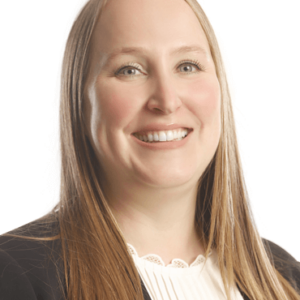New York State nursing homes face increasing scrutiny through the Office of the Medicaid Inspector General (OMIG) capital audits, which review the accuracy of capital costs reported for Medicaid reimbursement. These audits pose financial risks, but proactive risk mitigation can safeguard facilities.
What Are OMIG Capital Audits?
OMIG capital audits examine how nursing homes reported capital expenses in their Medicaid Cost Reports for Medicaid capital rate reimbursement. These audits cover a broad range of capital costs, including construction, renovations, equipment purchases, capitalized and non-capitalized leases, specific types of insurance, real estate taxes, sales tax, mortgage interest and more.
While these audits occur within the statute of limitations, they are typically conducted several years after the expenses were incurred and reported. This makes it critical for nursing homes to maintain accurate, detailed records over time. Auditors focus on whether the reported costs are properly classified, compliant with Medicaid rules, and sufficiently documented. Any discrepancies or gaps in documentation can result in financial penalties or the recoupment of funds, posing a significant risk to facilities.
Key Risks and How to Mitigate Them
- Non-Compliance: Misclassifying capital costs can lead to costly audit findings. Facilities must ensure all capital expenditures align with Medicaid guidelines to avoid penalties.
- Documentation Gaps: Incomplete or missing records pose a major risk. It’s essential to maintain detailed records for every capital expense, including contracts, invoices, and payment records, to support compliance.
- Financial Recoupments: Non-compliance findings can result in Medicaid recouping funds, which could severely affect the financial health of a nursing home.
Risk Mitigation Strategies
To minimize the risks associated with OMIG capital audits, nursing homes should adopt the following proactive strategies:
- Conduct Regular Internal Audits: Regularly audit your capital costs internally to catch and correct potential issues early. This reduces the risk of adverse findings during an OMIG audit.
- Maintain Thorough and Accessible Documentation: Ensure that every capital expenditure is thoroughly documented and accessible, including all supporting materials, to provide clear evidence of compliance.
- Partner with Compliance Experts: Partner with compliance experts who can guide you through the complexities of Medicaid rules and help prepare for audits.
- Leverage Cost-Tracking Technology: Consider investing in technology solutions, like cost-tracking software, to maintain organized and accurate records for audit readiness.
Recent Audit Trends
In recent years, OMIG has significantly increased its focus on capital audits across New York State nursing homes. This rise in audits reflects OMIG’s broader effort to ensure accurate Medicaid cost reporting, particularly for capital-related expenses, making it more important than ever for nursing homes to be diligent with their documentation practices. With audits happening years after costs are reported, facilities should always be prepared.
Looking Ahead
OMIG’s heightened focus on capital audits has put nursing homes in a position where proactive risk management is essential to avoid financial setbacks. By conducting regular internal audits, maintaining detailed records, and consulting with experts, facilities can mitigate the risks associated with these audits—even if the audit occurs years after the fact.
If your nursing home is facing an OMIG audit or you want to ensure your capital reporting practices are compliant, our team is here to help. With extensive experience in Medicaid compliance and audit readiness, we can guide you through the process and provide the support needed to navigate the complexities of OMIG capital audits. Please do not hesitate to reach out to discuss your specific situation.
This material has been prepared for general, informational purposes only and is not intended to provide, and should not be relied on for, tax, legal or accounting advice. Should you require any such advice, please contact us directly. The information contained herein does not create, and your review or use of the information does not constitute, an accountant-client relationship.




